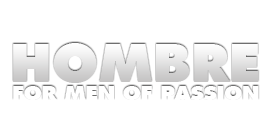HOMBRE Exclusive: JONAH HILL Flexes Comedy Muscle
16 Jun 2014 by Francisco Romeo in Celebrities, DVD, Fame, FAQs, Film, Films, Home, Profile

Two-time Academy Award nominee Jonah Hill teams up once again with Channing Tatum in the weekend’s number one box office hit 22 Jump Street. Hill plays Schmidt, the character he originated in 21 Jump Street, a film that also opened at number one and went on to earn over $200 million worldwide. In addition to starring in the film, Hill co-wrote the story and serves as producer. A proven writer, producer and director, Hill is adept at flexing his acting muscles and easily shifting from comedy to drama.
Hill was last seen in Martin Scorsese’s “The Wolf of Wall Street,” a role that garnered him a second Academy Award nomination for Best Supporting Actor. His previous nomination came courtesy of “Moneyball,” opposite Brad Pitt. Other film credits include “Django Unchained,” “This Is the End” and a series of performances in Judd Apatow comedies including “Get Him to the Greek” in 2010, “Funny People” in 2009, “Forgetting Sarah Marshall” in 2008 and “The 40-Year-Old Virgin” in 2005. His breakout role starring opposite Michael Cera in the acclaimed hit “Superbad” established him as a comedic force to be reckoned with.
Hill continues to confirm his place among a new generation of multi-hyphenates. He will team up for a third with Leonardo DiCaprio to produce and star in “The Ballad of Richard Jewell.” He is also working on co-writing “The Adventurer’s Handbook,” for which he will co-star with Jason Segel. He is writing “Pure Imagination,” an Apatow-produced comedy which he will executive produce. Hill was as an associate producer of the Sacha Baron Cohen comedy “Bruno” and an executive producer of “The Sitter.” He recently wrapped production on Rupert Goold’s “True Story” opposite James Franco.
HOMBRE: How did the film’s premise come about?
Jonah Hill: College seemed fun or funnier to explore for these characters. Anything else you can kind of roll your eyes, like, ‘What are you guys doing?’
H: You have great chemistry with Channing.
JH: I think our friendship is why you feel that on the screen. I don’t think you can artificially create that. You see it in the picture.
 H: What was your favorite part of the film?
H: What was your favorite part of the film?
JH: I loved shooting in Puerto Rico.
H: You mean ‘Puerto Mexico’ (the film’s fictitious Spring Break destination).
JH: (Laughs) That’s a perfect example (of working with the writers). I have no idea what that means but I totally trust those guys. We’re just gonna make up a place that doesn’t exist.
H: As a producer, what kind of projects do you want to be involved in?
JH: I would never produce a movie if there was no reason to, or if I didn’t feel some connection to it. This is something I started working on when I was 23, and I’m 30 now. It’s great to be part of something and be part of the fabric.
H: How does being only an actor on a film compare to being an actor in a film you’re also producing?
JH: As an actor in a film you’re really working for that person, you’re really servicing their vision. With this you’re not actually just playing your part, you’re working on making the movie good as a whole. That’s what’s interesting about producing, you pay attention to every element. When I’m working on “The Wolf of Wall Street” I’m only focusing on what I’m doing in that scene at that moment. I dont have to think about anything else because Martin Scorsese is thinking about everything, and he’s the best.
But with this it’s cool to think about things like where’s Channing’s character coming from, where is he now, three years later. You get to expand your presence in a movie and that’s exciting.
H: After starting your career with comedy, now being nominated for a second Academy Award, how hard is it to change an audience’s perception?
JH: All the people I’ve grown to love and respect through creative work strive to better themselves, challenge themselves. They’re all complex people. Just like I’m not funny all the time, I’m not serious all the time. I try very hard to not stay within one mold. You have different facets to your personality so to express that through your work is important to me.










